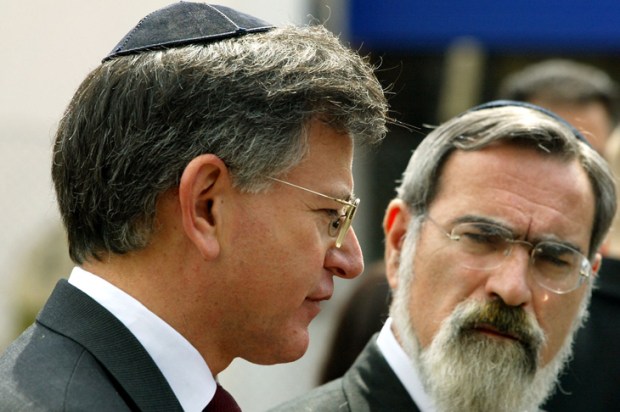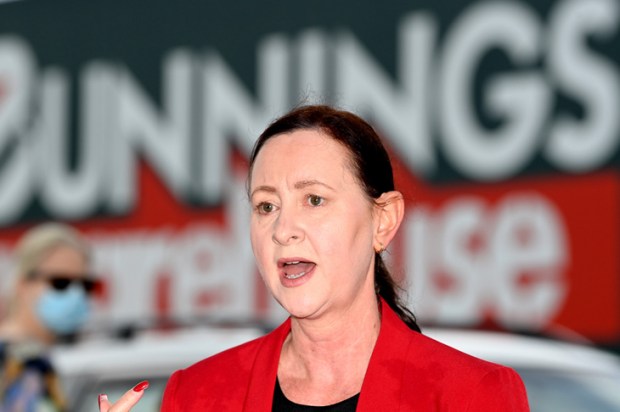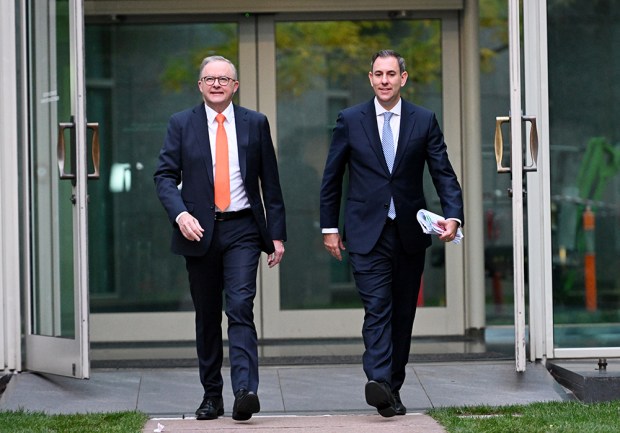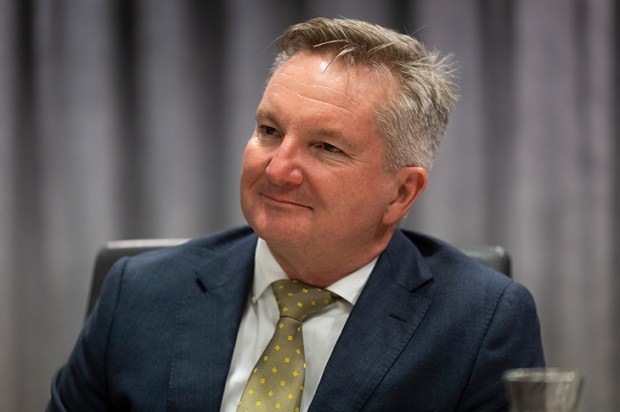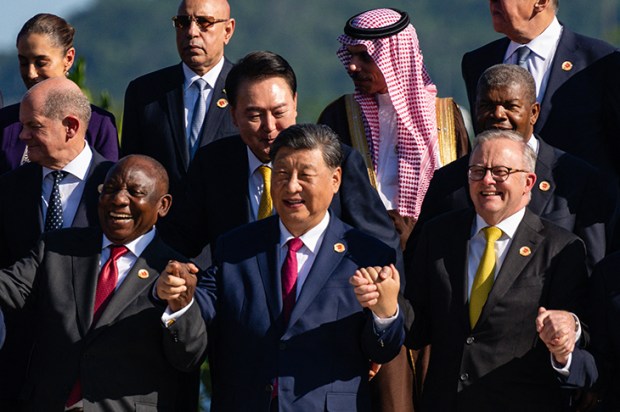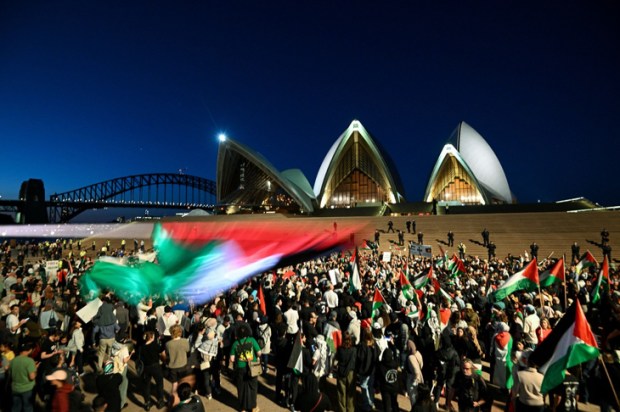As the flame goes out on the Paris Olympic Games, one image left smouldering in the minds of those of faith was the overt mockery of Christ at the opening ceremony on 26 July.
The grotesque parody of Leonardo da Vinci’s painting The Last Supper, saw Jesus Christ, portrayed by a lesbian DJ, surrounded by drag performers and a near-naked man painted blue. While the painting depicts one of the most profound moments of the Gospel stories, the Olympic organisers saw fit to parade writhing cross-dressers over what Christians hold sacred.
Despite the overtly profane performance, its artistic director, Thomas Jolly, hurriedly denied it was so, and Paris2024 spokesperson, Anne Descamps, apologised for any offence caused by the ceremony, stating, ‘I think (with) Thomas Jolly, we really did try to celebrate community tolerance…. If people have taken any offense, we are, of course, really, really sorry.’
In Australia, attacking Christianity has become a sport for the elites and the political class.
Just as in Paris, the evocation of ‘tolerance’ and ‘love’ is eerily resemblant of attacks on Christianity in our own country. Indeed, in Australia, the most savage attacks on our religious institutions are carried out in the name of ‘inclusivity’ and ‘equality’.
In March, the Australian Law Reform Commission (ALRC) released its report into religious educational institutions and anti-discrimination laws as proposed by the Albanese government. While entitled Maximising the Realisation of Human Rights, the ALRC in reality acknowledged that within ‘progressive’ politics, some rights are more equal than others. It concluded that while its changes would enhance many other rights, religious freedom should be limited in order to better protect the rights of others, noting ‘the recommended reforms may limit, for some people, the freedom to manifest religion or belief in community with others and the associated parental liberty to ensure the religious and moral education of their children in conformity with their own convictions’. It proceeded to propose sweeping changes that would render religious schools seriously vulnerable to activist attacks.
The report recommended that faith-based schools be stripped of their current exemption under Section 38 of the Sex Discrimination Act 1984, which allows them autonomy in hiring and enrolments so long as their decisions are made ‘in good faith in order to avoid injury to the religious susceptibilities of an adherent of that religion or creed’.
The proposed changes would hand a sword to activists seeking to undermine faith-based education by making faith-based schools vulnerable to litigation. Under the ALRC’s proposed changes, if a teacher conducted lessons contrary to the school’s religious ethos, it would have had no protection to ensure staff members honour the fundamental principles of the institution’s values.
Under the current laws, schools are protected from litigation under Section 38. However, if a future federal government successfully enacts the ALRC’s recommendations, the school would be left with little choice but to acquiesce to the teacher’s demands, or face litigation.
Having failed to convince the federal opposition to buy into its attack on Australia’s religious institutions, the Prime Minister appears to have contracted a serious case of cold feet on changing Australia’s religious discrimination laws, of which changes to Section 38 were believed to be a part. The PM said rather sheepishly, ‘The last thing that Australia needs is any divisive debate relating to religion and people’s faith…. I don’t intend to engage in a partisan debate when it comes to religious discrimination.’
While it seems this front of the elite’s war on religion has gone quiet, the battle still rages. In July, the Productivity Commission, now led by former Grattan Institute CEO Danielle Wood, released recommendations in its Future Foundations for Giving Inquiry report that seeks to diminish the ability of religious groups to attract philanthropic support.
Despite all evidence suggesting that religious entities enrich lives and provide a vital source of support in the community, the Productivity Commission does not consider them to be in line with the federal government’s philanthropic goals. It declared that there was ‘no strong case for government support’ of activities which seek to advance religion through the deductible giving recipient system.
The Commission instead recommended the federal government expressly exclude ‘all activities in the subtype of advancing religion’ from deductible giving recipient status, ‘primary, secondary, religious and informal education activities’ and school building funds.
Worse still, the Report recommends the abolition of the ‘basic religious charity’ category and related exemptions. This would empower the regulator, the Australian Charity and Non-for-profits Commission, to suspend, appoint, and remove leaders of religious institutions if it declared they violated certain governance standards. Currently, basic religious charities have autonomy over their own leadership.
The report justifies this as an effort to bring basic religious charities into line with the regulatory framework, citing that ‘inconsistent treatment of basic religious charities lacks policy rationale’. However, the Productivity Commission’s proposal is not merely a regulatory technicality, but rather the deliberate blurring of the line between church and state.
The autonomy to select, appoint, discipline, and remove religious leaders is fundamental to religious liberty. The logical extension of the state being empowered to appoint and dismiss religious leaders is that it would be positioned to select ministers sympathetic to its political goals, and to remove others that challenge its authority.
As Australia drifts ever further down the path of moral relativism, it is crucial that the church remain free to proselytise its faith and ethos. The idea that some government bureaucrat would be empowered to appoint or dismiss a religious leader is anathema to liberal democracy, and is an eerie echo of the Council for Religious Affairs appointing priests across the Soviet empire.
The race to nobble religious liberty in our own backyard is being vigorously contested. While Australia’s aggressive breed of institutional secularism may not be covered in sequins and blue body paint, it has the same finishing line.
Got something to add? Join the discussion and comment below.
Margaret Chambers is a Research Fellow at the Institute of Public Affairs
You might disagree with half of it, but you’ll enjoy reading all of it. Try your first month for free, then just $2 a week for the remainder of your first year.


